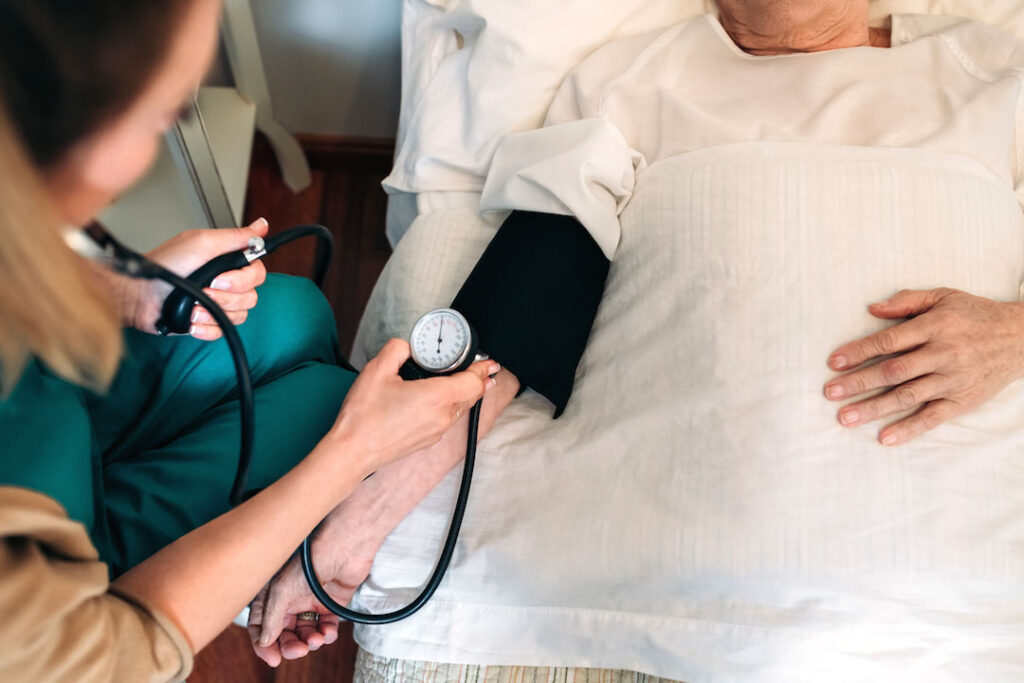Sleep Apnea is a dangerous sleep disorder characterized by several interruptions in breathing throughout the night. High blood pressure, commonly known as hypertension, is a frequent health concern when the force that pumps blood through blood vessels is higher than average. Many people with hypertension don’t experience any noticeable symptoms until they get their blood pressure checked. High blood pressure, if ignored, places unnecessary stress on the heart and blood vessels and can increase the risk of stroke and heart disease. This article will elaborate on how sleep apnea and hypertension can influence one another, and knowing the connection between the two is essential.
The Relation Between Sleep Apnea and the Hypertension:
Sleep apnea occurs when throat muscles relax, narrowing the airway and stopping breathing. Short bouts of rapid breathing lasting anywhere from a few seconds to a few minutes are a possible side effect. The stress on the heart can be exacerbated by the accompanying rise in blood pressure and adrenaline levels. When blood pushes too firmly against the arterial walls, as occurs with hypertension, the heart has to work harder than usual to pump the blood around the body. The terms pulmonary hypertension, refractory hypertension, systemic hypertension, and resistant hypertension all describe sub types of this disease. Both the systolic and diastolic pressures are calculated from a blood pressure reading.
How exactly can high blood pressure result from sleep apnea?
Obstructive sleep apnea, caused by airway obstructions, raises blood pressure by making the heart work harder to pump oxygenated blood. Blood pressure is more significant than expected when we sleep since the brain sends more blood to vital places. Insomnia puts extra strain on the heart, and obstructive sleep apnea causes the sympathetic nervous system to become overactive.
- Sleep loss puts stress on the heart, and OSA, in particular, leads to hypertension due to sympathetic nervous system overactivation. However, prolonged exposure to high levels of activation has been linked to hypertension.
- Sympathetic nervous system activation and a quick increase in blood pressure occur in a person with OSA when they suffer airway collapse and a brief pause in breathing during sleep.
- The sympathetic nervous system and blood pressure may become even more activated, resulting in the individual waking up from sleep.
- Blood pressure rises when too many hormones called catecholamines are in the body.
- There is a complex interplay between obstructive sleep apnea, high blood pressure, obesity, and insulin resistance. Obesity predisposes persons to OSA and raises their chance of acquiring high blood pressure.
- Research suggests that when a person has both OSA and excess weight, the two disorders may affect one another in ways that harm cardiovascular health.
- Hypertension may develop as a result of the increased stress on the cardiovascular system and the hormone leptin, which encourages appetite.
- Although obesity is a well-established risk factor for developing insulin resistance, sleep apnea also contributes.
How does Sleep Apnea get treated at the German Heart Centre?
Sleep apnea can be diagnosed at the German Heart Centre in Dubai with the help of sleep testing like polysomnography.
- CPAP and Bi-level Positive Airway Pressure (BiPAP) are two treatments that supply a constant stream of air to keep the airway open during sleep. The quality of your sleep can be enhanced by making some adjustments to your daily routine.
- The German Heart Centre typically collaborates with sleep medicine doctors to address cardiovascular difficulties and sleep-related illnesses.
Conclusion:
The German Heart Centre in Dubai has introduced the most effective therapeutic combination for treating sleep apnea and hypertension, decreasing the likelihood of serious complications. Particularly in patients with resistant hypertension, treating sleep apnea with continuous positive airway pressure (CPAP) has been found to reduce blood pressure. The most practicable mix of therapies for sleep apnea and excessive blood pressure can minimize the risk of significant problems. People with this sleeping illness may have blood pressure that doesn’t drop at night, which elevates the risk of heart problems. If you have high blood pressure, now is the time to have sleep apnea tested for and consult with professionals at the German Heart Centre in Dubai. Plan your visit right away!

